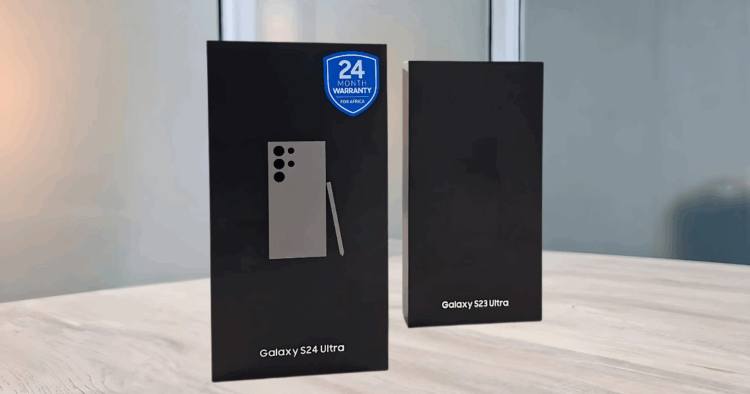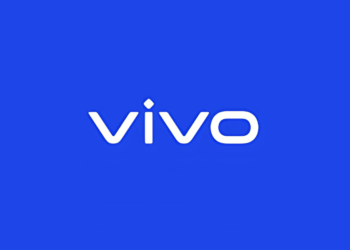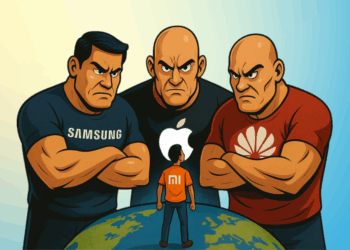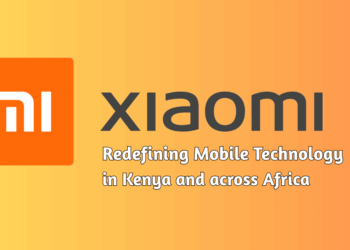Why Your Smartphone Could Be Your Biggest Productivity Tool Yet
In today’s hyper-connected Kenyan digital economy, spending KES 150,000 lump sum on a premium smartphone isn’t just a splurge—it’s a statement. But is it a smart move or just another shiny indulgence? Is that sleek device in your hand driving productivity and enabling better connectivity, or just fueling your ego while you sip a Cappuccino at Java?
From mobile banking in seconds to running entire businesses on the go, the smartphone has evolved beyond its humble beginnings. It’s now your virtual assistant, content studio, executive dashboard, and networking lifeline—especially for entrepreneurs, e-commerce traders, digital marketers, and creatives navigating Nairobi’s fast-paced ecosystem.
With top-tier choices flooding the market—think Apple’s flagship innovations, Samsung’s productivity beasts, OnePlus & Nothing Phone’s disruptive emergence, and emerging foldables from Oppo and Vivo—it’s easy to get swept away by flashy specs and influencer hype. But before you hit “Buy Now,” ask yourself: Is this device aligned with how I work, create, and lead in 2025?
Here are five unmissable criteria every ambitious Kenyan buyer must consider when choosing their next productivity machine.
1. Battery Life & Charging Speed: The True Workhorse Metric
High productivity could mean you are a busy individual, always on the move, and deeply engaged. Your daily schedule demands moving between meetings, editing on the go, or catching deadlines from the matatu seat, Uber, or even being on speaker phone or talking through your earbuds as you drive. Undoubtedly, battery endurance is critical. Before considering a power bank, ensure your smartphone battery is sufficient for your needs. It is not a luxury, but a necessity in today’s busy world, where smartphones play a crucial role as communication and transactional devices.
When your smartphone doubles as your office, studio, bank, and lifeline, you need a device that won’t flinch under pressure. A gadget with a battery capacity of 5,000mAh or higher will serve you well. Anything below this will subject you to regrettable moments, where you will question the value you draw from your pricey or cheap gadget. Here are three productivity beasts that deliver serious power in the 100K–150K bracket:
Samsung Galaxy S24 Ultra and S25 Ultra
These are the latest premium handsets from Samsung’s Galaxy S series. By a long shot, they are considered the best smartphones by many based on their performance. Battery-wise, both are equipped with 5,000mAh batteries. The Galaxy S24 Ultra comes with a 5000mAh Battery, alongside a 45W wired PD 3.0 fast charger (recharges 0-65%) of the battery in 30 minutes. It also supports wireless charging via Qi technology, in addition to 4.5W reverse wireless charging. The recently launched Galaxy S25 Ultra features similar battery attributes, along with enhanced Qi 2 Wireless charging capabilities. For Kenyan professionals, especially those juggling mobile-heavy tasks, Samsung wins on endurance and turnaround time.
OnePlus 13
The OnePlus 13 redefines battery innovation with a massive 6,000mAh silicon-carbon cell, split into dual 3,000mAh units for balanced power distribution. This powerhouse supports 100W wired and 50W wireless charging, delivering a full charge in under 40 minutes. Its Battery Guardian AI learns user habits to optimize longevity, while bypass charging allows direct power flow during gaming or heavy use, minimizing heat and preserving battery health. For Kenyan professionals and creators, it’s a productivity engine that keeps pace with ambition, not just daily demands.
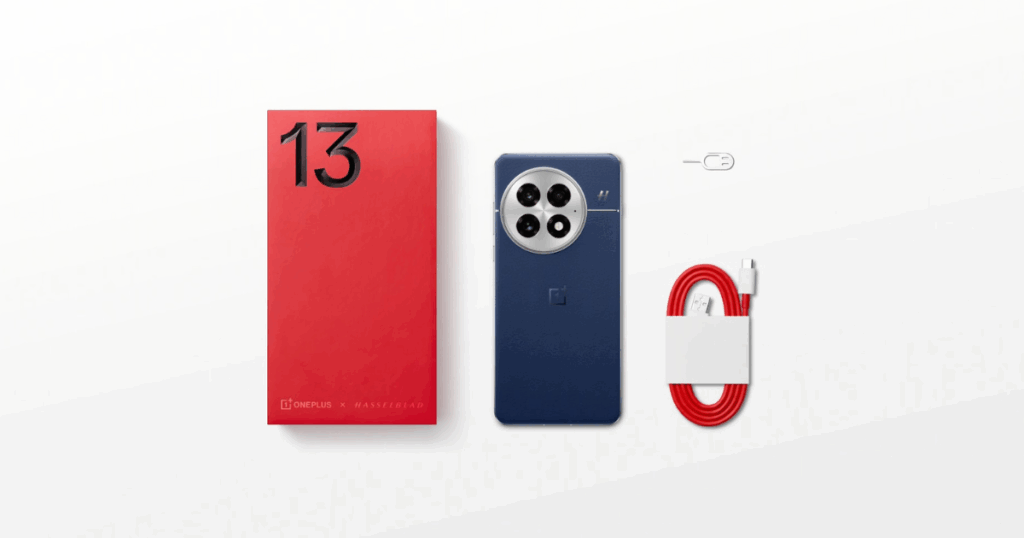
Xiaomi 15 Ultra
Those who know the game know the sleek and powerful Xiaomi 15 Ultra. It features a robust 5410mAh silicon-carbon Li-ion battery, offering exceptional energy density and longevity. The premium Xiaomi handset supports 90W wired charging, 80W wireless charging, and 10W reverse wireless charging, ensuring rapid top-ups in any scenario. What sets it apart is its dual-cell architecture and advanced thermal management, which maintain peak performance without overheating. For busy professionals, this means over 16 hours of active use and full recharge in under an hour, minimizing downtime. Its intelligent power allocation and HyperOS optimizations further enhance reliability, making it a powerhouse companion for demanding schedules and mobile productivity.
Iphone 16 Pro Max
The iPhone 16 Pro Max features a 4685mAh Li-Ion battery, optimized by the A18 Pro chip and iOS 18’s intelligent power management. It supports 25W wired charging, 15W MagSafe, and reverse wired charging, ensuring flexibility and speed. What makes it uniquely reliable is its thermal efficiency and real-world endurance, delivering up to 33 hours of video playback. For busy professionals, this translates to all-day productivity without battery anxiety. Whether you’re streaming, multitasking, or navigating meetings, the Pro Max’s battery resilience and fast recharge capabilities make it a dependable tool for high-performance lifestyles. It’s built to keep pace with ambition.
Google Pixel 9 Pro XL
The Google Pixel 9 Pro XL packs a robust 5060mAh Li-Ion battery, engineered for intelligent endurance. Backed by the Tensor G4 chip, it leverages adaptive power management to stretch uptime across demanding workflows. Charging is swift and versatile: 37W wired (PD3.0, PPS), 23W wireless via Pixel Stand, and reverse wireless charging for accessories. With Extreme Battery Saver, you can push up to 100 hours of runtime. The Pixel’s bypass charging feature minimizes heat during gaming or video editing, preserving battery health. For Kenyan creators and strategists, it’s an innovative, cool-running powerhouse that prioritizes efficiency over brute force.
Here is our merit scorecard for those considering these specified models.
Table 1: Battery & Charging Merit Table for Premium Smartphones
| Device | Battery Capacity | Fast Charging (Wired/Wireless) | Reverse Charging | Reliability Score¹ | Merit Rank |
| OnePlus 13 | 6000mAh (Si-Carbon) | 100W / 50W | 10W wireless, 5W wired | ⭐⭐⭐⭐⭐ | 🥇 1st |
| Xiaomi 15 Ultra | 5410mAh (Si-Carbon) | 90W / 80W | 10W wireless | ⭐⭐⭐⭐⭐ | 🥈 2nd |
| Pixel 9 Pro XL | 5060mAh (Li-Ion) | 37W / 23W | 5W wireless | ⭐⭐⭐⭐ | 🥉 3rd |
| Samsung Galaxy S25 Ultra | 5000mAh (Li-Ion) | 45W / 15W | 4.5W wireless | ⭐⭐⭐⭐ | 4th |
| iPhone 16 Pro Max | 4685mAh (Li-Ion) | 25W / 15W (MagSafe) | Wired only | ⭐⭐⭐ | 5th |
2. Camera Capabilities: Beyond Megapixels—Think Functionality
One reason you will buy a high-end smartphone is definitely because of its camera capabilities. In Kenya’s sophisticated, digital-first economy, your smartphone camera is not just for selfies. It is your content engine, your brand builder, and your storytelling lens. Whether you are shooting product reels in Karen, documenting wildlife in Amboseli, recording a live event for your social media platforms and YouTube, or capturing behind-the-scenes moments at a startup pitch, camera versatility and intelligence matter more than MegaPixels alone. In recent times, Artificial Intelligence has made a significant impact, and its influence on camera functionality cannot be overstated.
Let’s break down five camera kings in the Kes 100K–200K range:
Samsung Galaxy S25 Ultra
Samsung, having a reputation to protect, a high standard to maintain, and equally high expectations from a large, loyal global audience to meet, does not take chances when it comes to packaging its cameras on high-end phones. The Galaxy S25 Ultra is a class above the rest, matching its high price tag: why? Here is its impressive quad-camera setup that leaves nothing to chance
Primary Camera – 200 MP, f/1.7, 24mm (wide), 1/1.3″, 0.6µm, multi-directional PDAF, OIS
- Captures ultra-high-resolution images with exceptional detail
- Ideal for general photography, landscapes, and cropping without losing quality
- Supports 8K video recording and advanced HDR
Telephoto Camera – 10MP (3x optical zoom, f/2.4), PDAF, OIS
- Perfect for portraits and medium-range zoom shots
- Maintains clarity without digital distortion
- Includes optical image stabilization (OIS) for steady results
Super-Telephoto Camera – 50MP (5x optical zoom, f/3.4, periscope telephoto.
- Designed for long-range zoom with crisp detail
- Enables up to 100x Space Zoom with AI enhancements
- Great for wildlife, architecture, or moon shots
Front Camera – 12MP (f/2.2)
- Delivers sharp selfies with Dual Pixel autofocus
- Supports Nightography and 4K video for vlogging or video calls
Each lens is tuned with Samsung’s ProVisual Engine, which uses AI to optimize clarity, reduce noise, and enhance dynamic range.
As a premium package, the Galaxy S25 Ultra hits its mark, providing excellent value for money.
Xiaomi 15 Ultra
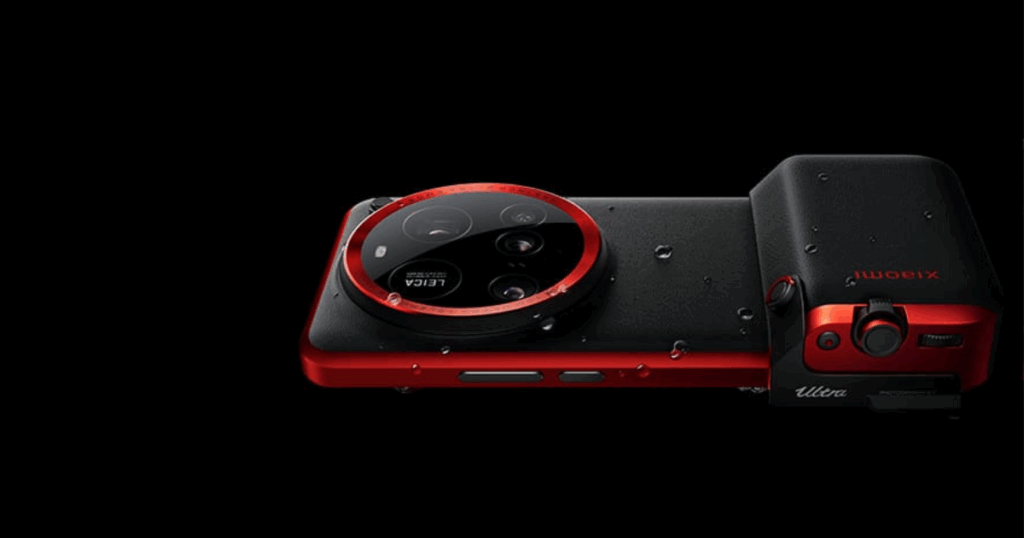
The Xiaomi 15 Ultra’s camera package is a masterclass in mobile imaging, co-engineered with Leica to deliver DSLR-level versatility. It features a quad-camera setup:
- 50MP 1-inch Sony LYT-900 main sensor with f/1.6 aperture for stunning low-light and depth-rich shots
- 200MP Samsung HP9 periscope telephoto lens with 4.3x optical zoom for crisp long-range photography
- 50MP 3x telephoto lens for natural bokeh and portrait precision
- 50MP ultra-wide lens with 115° FoV for expansive landscapes
- Front Camera: 32MP, f/2.0
What truly elevates the Xiaomi 15 Ultra Camera package and makes it King among Camera Smartphones is the Photography Kit Legend Edition, which adds:
- A detachable shutter button, zoom lever, and customizable dial
- A 67mm filter adapter ring for ND and polarizing filters
- A 2000mAh grip battery that doubles as a power bank
- Exclusive Fastshot UI mode for street photography
When integrated, this setup transforms the phone into a pro-grade camera system, ideal for creators who want tactile control, cinematic flexibility, and uncompromising image quality.
iPhone 16 Pro Max
- Main Camera: 48MP, f/1.8, 1/1.28″
- Ultra-Wide: 48MP, f/2.2, 120°
- Telephoto: 12MP, f/2.8, 5x optical zoom
- Front Camera: 12MP, f/1.9
- Video: 4K Dolby Vision @60fps, ProRes, Cinematic mode
- Special: Photonic Engine, Apple ProRAW, Spatial video, Log recording
Overall, the iPhone 16 Pro Max’s camera performance excels in real-world use. The Camera Control button provides tactile precision, even when wearing gloves, making spontaneous shots easier. Its 48MP Ultra-Wide sensor captures immersive landscapes without sacrificing resolution. ProRAW and ProRes formats offer editing flexibility, while 4K/120fps video provides stunning smoothness. Improved lens coatings reduce flare, and Photographic Styles adapt intelligently to skin tones, enhancing portraits with minimal post-processing.
Vivo X200 Pro
The Vivo X200 Pro was designed and created with Photography and Videography Excellence in mind. Effortlessly, the handset redefines mobile photography with its outstanding ZEISS co-engineered triple-lens system:
- 200MP ZEISS APO telephoto lens with a large 1/1.4″ sensor and 85mm focal length delivers ultra-sharp zoom, macro precision, and lifelike portraits—even in low light;
- 50MP Sony LYT-818 primary sensor (1/1.28″) offers exceptional dynamic range, fast readout speeds, and rich color accuracy, rivaling 1-inch sensors;
- 50MP ultra-wide lens with autofocus and 119° FoV captures expansive scenes with clarity.
Unique modes, such as Telephoto HyperZoom, Telephoto Macro, and Telephoto Nightscape, offer creators unmatched flexibility across focal lengths, ranging from 23mm to 135mm. The ZEISS T coating reduces flare and ghosting, while Perspective Correction and Street Photography Mode add pro-level finesse.
If you are more into Videography Mastery, the X200 Pro is a filmmaker’s dream. Why:
- Effortlessly, it shoots 4K at 120fps, 8K at 30fps, and Dolby Vision HDR across all lenses
- Supports 10-bit LOG video, Cinematic LUTs, and ZEISS Cinematic Mode for post-production flexibility
- Features 4K Backlit Portrait Mode and native HDR for stunning low-light video capture
- Its Vivo V3+ imaging chip and MediaTek Dimensity 9400 enable frame-by-frame computational processing, ensuring cinematic depth and clarity
For armatures who love the product package but are limited in their understanding of photography and videography technical jargon, I will say that the Vivo X200 Pro delivers effortless excellence as a camera smartphone. Its camera captures crisp, true-to-life photos and cinematic videos without fuss. Whether it’s a quick portrait, a product shot, or a scenic clip, the results look polished straight from the phone. Low-light scenes remain clear, zoomed shots stay sharp, and colors appear natural. It’s the kind of device that quietly proves its worth—no jargon, just dependable, high-quality output every time.
OnePlus 13
Quietly brilliant, the OnePlus 13 delivers a powerful performance in phone photography. It is quite a disruptor in the premium handsets market segment. What does it pack, camera-wise?
- Main Camera: 50MP, f/1.6, Sony LYT-808
- Telephoto: 50MP, f/2.6, 3x optical zoom
- Ultra-Wide: 50MP, f/2.0, 120°
- Front Camera: 32MP, f/2.4
- Video: 8K @30fps, 4K @60fps, Dolby Vision
- Special: Hasselblad Color Calibration, Movie mode, XPAN, Master mode
As I mentioned earlier, this phone is remarkably brilliant. Its camera setup is engineered for professionals who want results, not jargon. Its triple 50MP system, tuned by Hasselblad, delivers lifelike clarity across wide, ultra-wide, and telephoto shots. The Triprism telephoto lens offers crisp 3x zoom without bulk, while Dual Exposure algorithms ensure motion shots stay sharp and vibrant. Add Clear Burst for flawless burst photography and AI editing tools that save time post-shoot—this setup quietly outperforms, proving its worth with every snap.
Google Pixel 9 Pro XL
Many people, especially those who can afford it, purchase Pixel handsets due to the exceptional camera experience they offer. It is quite rightly so. Let’s go deep into its Pixel 9 Pro XL camera setup:
- 50MP primary sensor with Octa-Pixel Dual Pixel (Oct-PD) autofocus and OIS for sharp, balanced shots
- 48MP ultra-wide lens with 123° field of view and Macro Focus for close-up detail
- 48MP telephoto lens with 5x optical zoom and Zeiss Perspective Correction for distortion-free zoom
- Front Camera: 42MP (ultra-wide)
- Video Capabilities: 8K@30FPS (via cloud-based upscaling); 4K @24/30/60fps, 1080p@24/30/60/120fps, 10-bit HDR
- Super Res Zoom Video up to 20x with minimal loss in detail
- Video Boost mode for cinematic stabilization and vibrant color rendering
- HDR+ pipeline enhances dynamic range and skin tone accuracy
- AI & Smart Features:
- Add Me uses AR to include the photographer in group shots
- Magic Editor simplifies post-editing with intuitive tools
- Frequent Faces ensures familiar faces are well-lit and in focus
- Face Unblur & Photo Unblur sharpen motion-blurred images automatically
- Special mention: Tensor G4 ISP, Real Tone, Magic Editor, Night Sight, Best Take
The Pixel 9 Pro XL’s camera setup stands out for blending pro-grade hardware with intuitive AI features. Its triple rear system includes a 48MP 5x telephoto lens with upgraded autofocus and a 42MP front camera for sharp low-light selfies. The HDR+ imaging pipeline enhances tone, texture, and skin tones, while Super Res Zoom Video delivers crisp footage up to 20x zoom. Features like Add Me, Zoom Enhance, and Magic Editor simplify group shots and post-editing. With Night Sight Panorama and Macro Focus, it captures everything from sweeping landscapes to intricate close-ups, making it a top pick for users and creators who want effortless excellence.
These smartphones may confuse you when it comes to choosing which one to pick, based on your photography and videography skills and needs. We have taken the necessary steps to create a merit table, listing these top models for your consideration.
Table 2: Flagship Camera Kings: Ranked Top to Bottom
| Rank | Smartphone | Based on Pick Title | Why It’s King |
| 1. | Samsung Galaxy S25 Ultra | Versatile Shooting | -ProVisual AI engine offers creative control -4-lens setup covers ultra-wide to extreme zoom -Expert RAW for professionals |
| 2. | Xiaomi 15 Ultra | Creative Flexibility | -Leica UltraRAW & Log enable full editorial control -Floating telephoto macro inspires unique perspectives -4K @120fps for cinematic visuals |
| 3. | iPhone 16 Pro Max | Vlogging & Video | ProRes + Cinematic mode for story-driven creatorsSpatial video unlocks immersive contentDolby Vision gives filmic polish |
| 4. | Vivo X200 Pro | Low-Light Photography | -Zeiss optics with dedicated imaging chip -Strong low-light aperture and HDR stacking -Tele-macro performance excels in dark scenes |
| 5. | Google Pixel 9 Pro XL | Portraits & Skin Tones | -Real Tone preserves authentic skin textures -AI features simplify multi-face edits -Consistent HDR for social-ready shots |
| 5. | OnePlus 13 | Color Science & Aesthetics | -Hasselblad profile adds more natural, vibrant, and true-to-life colors in photos and videos taken with the phone. -XPAN Mode brings a retro touch -Master Mode gives manual artistic control |
3. Processor Performance & RAM: Multitasking Without Meltdowns
This is where the rubber meets the road! Processors determine the performance of smartphone devices and meet the needs of users. In Nairobi and throughout Kenya, lag is deadly in the high-stakes hustle. Whether you’re toggling between Canva, Slack, and Google Sheets or editing 4K footage while uploading it to Drive, your smartphone’s processor and RAM combination must be robust.
Smartphones have evolved beyond being status symbols and means of communication. For busy, highly productive individuals facing high-performance, high-pressure tasks, smartphones are handy tools that ensure efficiency and timely delivery.
What do you look for when the stakes are high and you need to invest for a 100% ROI and value for your money? Here is our merit list for these five devices, based on workflow type and our best pick. Notably, each device has its strengths, and for the sake of clarity, we have compiled a tabular summary of our comparison.
Table 3: Top Flagship Phones for Power Users | Workflow Optimization Comparison
| Feature/Strength | Samsung Galaxy S25 Ultra | iPhone 16 Pro Max | Xiaomi 15 Ultra | OnePlus 13 | Pixel 9 Pro XL |
| AI Workflow Tools | Galaxy AI, Note Assist | Apple Intelligence | HyperAI Suite | AI Text/Image Enhancements | Gemini AI, Screenshot AI |
| Multitasking + Ecosystem | DeX, seamless device sync | macOS/iPadOS continuity | Mi Share, PC Connect | OxygenOS fast UI | Google services only |
| Content Creation (Media) | Generative Edit, S Pen | ProRes, Spatial Video | Leica 1-inch sensor, AI camera | Hasselblad + Dolby Vision | Consistent AI editing |
| Hardware/Performance | Snapdragon 8 Elite, 12GB RAM | A19 Pro, 8GB+ RAM | Snapdragon 8 Elite, IceLoop | Snapdragon 8 Elite, 16GB RAM | Tensor G4, 12GB RAM |
| Battery & Cooling | 5000mAh, vapor chamber | 4685mAh, optimized system | 5410mAh, 3D cooling | 6000mAh, extreme endurance | 5060mAh, efficient AI use |
| Photography & Video | 200MP + Generative camera | 48MP Triple w/ Lidar | Leica Quad w/ 1″ sensor | 50MP Hasselblad system | AI-enhanced Pixel camera |
| Connectivity & Coverage | 5G + Satellite + Ultra-Wideband | 5G + Ultra-Wideband + eSIM | 5G + Satellite + Global bands | Dual SIM + 5G | 5G + eSIM + Wi-Fi 7 |
| Best Use Case | Campaign management, multitasking | Multimedia creation, secure workflows | Content shooting in the field | Quick mobile edits, scripting | Idea generation, summaries |
Table 4: Our Merit Score Card on Overall Performance
| Device | AI Tools | Performance | Content Creation | Ecosystem | Productivity | Total Merit Score |
| Galaxy S25 Ultra | 9.5 | 9.5 | 9.0 | 9.5 | 10.0 | 47.5 / 50 ⭐️ Top Tier |
| iPhone 16 Pro Max | 9.0 | 9.0 | 9.5 | 10.0 | 8.5 | 46.0 / 50 🥈 Premium Pick |
| Xiaomi 15 Ultra | 8.5 | 9.0 | 9.5 | 8.0 | 8.0 | 43.0 / 50 🥉 Creative Powerhouse |
| OnePlus 13 | 8.0 | 9.5 | 8.5 | 7.5 | 8.0 | 41.5 / 50 ⚡ Speed Specialist |
| Pixel 9 Pro XL | 8.5 | 8.0 | 8.0 | 7.0 | 7.5 | 39.0 / 50 💡 AI Simplicity Hub |
Our Verdict
- Galaxy S25 Ultra edges out the competition with sheer processing power (boasts of Snapdragon 8 Elite), high versatility and unmatched productivity features like DeX and S-Pen workflows.
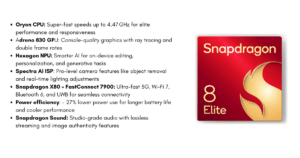
- iPhone 16 Pro Max wins in ecosystem polish and creative precision, especially for video and voice-over work.
- Xiaomi 15 Ultra shines in camera and creative AI tools, making it perfect for visually immersive storytelling.
- OnePlus 13 delivers raw speed and endurance but leans more toward power users than creative pros.
- Pixel 9 Pro XL offers smart, clean tools for light workflows, ideal for ideation rather than execution.
4. Software Longevity & Security: Future-Proof Your Investment
I hated it back then. You’d buy a device today, and barely a year later, you’re forced to ditch it for something “better.” Rising costs and frustrating repair experiences made change inevitable. Getting turned away at repair shops because parts were unavailable, and being left with two options: buy a new phone or settle for a kabambe.
Today, longevity makes perfect sense across hardware, software, and security.
Software Longevity Is Now Essential
In Kenya’s evolving smartphone landscape, extended OS and security support is no longer a luxury—it’s a necessity. It guards against rising cyber threats, ensures compatibility with mobile platforms such as M-PESA, and facilitates access to emerging fintech services.
Brands like Apple, Samsung, and Google now offer 6–8 years of updates on flagship models. Devices like the Galaxy S25 Ultra, Pixel 9 Pro XL, and iPhone 16 Pro Max deliver long-term value, better resale potential, and reduced e-waste through sustainable ownership.
Table 5: Software Longevity
| Brand | OS Update Duration | Security Patch Support | Notable Models in Kenya | Key Advantage |
| Apple | 6–8 years | 6–8 years | iPhone 16 Pro Max, iPhone 15 | Consistent updates across all models |
| Samsung | 7 years | 7 years | Galaxy S25 Ultra, A56, A36 | Flagship & midrange support |
| 7 years | 7 years | Pixel 9 Pro XL, Pixel 8 | Fastest Android updates | |
| OnePlus | 4 years | 6 years | OnePlus 13, Nord CE5 | Clean UI, decent longevity |
| Xiaomi | 4 years | 5 years | Xiaomi 15 Ultra, Redmi A5 | Improving, but still inconsistent |
Why It Matters for Professionals, Entrepreneurs, Creators, and Students
From high-res content creation to crypto trading, voice-over editing, research, and reporting—smartphones power real productivity. A secure and up-to-date operating system ensures everything runs smoothly without disruption. As more Kenyan consumers shift focus from gimmicks to reliability, software support has become the smartest tech investment.
Leading by Example
- Samsung stands out with its Knox security and long-term update promise—ideal for avoiding premature obsolescence.
- Apple and Google are equally committed, ensuring their devices remain future-proof across user segments.
Future-Proofing: The Non-Negotiables
Early adopters, future-proofing their gadgets, are already seeing benefits—more brand loyalty, a competitive edge, and long-term usability. Here is what matters most:
Table 6: Future Proofing attributes
| Pillar | What to Look For |
| Software Updates | Minimum 5–7 years of OS & security updates (Apple, Google, Samsung lead) |
| Processor Power | Flagship chips like Snapdragon 8 Elite, A18 Pro, and Tensor G4 for future app and AI support |
| 5G Support | Broad 5G band compatibility for global access (and future 6G readiness) |
| Battery Life | Go for 5,000mAh+ batteries with efficient chipsets for sustained performance. |
| Durability | Look for IP68, Gorilla Glass, and modular design elements. |
| Storage | Minimum 256GB to handle future apps, media, and AI tools |
| AI Features | Prioritize brands investing in AI enhancements (camera, assistants, creator tools) |
The bottom line is that don’t gamble with obsolescence. Choose a smartphone that grows with you, not against you.
5. Connectivity Is Currency: Why Network Flexibility Defines Kenya’s Hybrid Workforce
In Kenya’s hybrid work culture, connectivity is no longer a convenience—it’s capital. Whether you’re managing Safaricom M-PESA services on one SIM and relying on Airtel for data, or toggling between work and personal profiles, network agility has become non-negotiable.
Flexibility Across Networks Kenyan users routinely juggle multiple lines to maintain productivity and minimize downtime. Whether it’s routing sensitive transactions through Safaricom while streaming, collaborating, or researching via Airtel or Telkom, the ability to seamlessly shift across networks is essential. Brands offering robust dual SIM and eSIM support empower users to stay connected without disruption, especially for professionals who frequently move across countries or time zones.
The Rise of 5G and Wireless Synergy
With 5G rollouts accelerating in Kenya, latency is decreasing, and real-time communication is improving. Hybrid professionals engaging in video conferencing, remote collaboration, and cloud-based work now depend on ultra-fast, stable connections. Devices supporting broad 5G bands ensure access to evolving wireless infrastructure, critical for everything from fintech services to AI-enabled productivity apps.
Network Reliability Is King
Flaky connections aren’t just annoying—they’re costly. In Kenya’s business ecosystem, every dropped call or lagging video feed risks lost opportunities. That’s why smartphones need strong network antennas, carrier aggregation, and compatibility with both urban and rural networks to deliver stable performance regardless of location.
Connectivity Across Cultural and Geographic Divides
Kenya’s remote-first professionals, digital entrepreneurs, and regional freelancers span counties, countries, and cultures. Phones equipped with multiple lines, eSIM adaptability, and robust roaming features support their movement without sacrificing connectivity. Whether you’re crossing the Maasai, navigating Nairobi’s urban jungle, or seeking trade partners in Kampala (Uganda), Kigali (Rwanda), or opening a branch in Lubumbashi (DRC), your device should connect with minimal friction.
Video Calls, Real-Time Sharing, and Cloud Access
From Zoom meetings and Google Meet briefings to high-res media uploads and voice-over collaborations, low-latency video communication is a lifeline. Flagship chips like Snapdragon 8 Elite, Apple A18 Pro, and Tensor G4 enable AI-driven noise cancellation, bandwidth optimization, and real-time enhancements that elevate remote work productivity.
Table 7: Essential Connectivity Features to Prioritize in 2025 and Beyond:
| Feature | Why It Matters |
| eSIM & Dual SIM Support | Enables simultaneous work/personal line management & seamless regional mobility |
| Broad 5G Compatibility | Ensures high-speed, low-lag access for video calls, real-time sharing & future networks |
| Strong Signal Reception | Vital for staying connected in rural areas & during inter-county travel |
| Hotspot & Tethering Strength | Supports team connectivity in shared workspaces or during travel |
| Wi-Fi 6 & 6E Support | Delivers faster, more stable internet in high-density environments |
| AI-Optimized Networking | Automatically switches between networks for optimal performance and stability. |
Choose a smartphone that’s as adaptable as your hustle. In Kenya’s digital economy, the power to connect—anywhere, anytime—is the edge that separates the productive from the frustrated. If you can afford a flagship handset, it will undoubtedly save you a lot of hassle, enabling you to achieve more quickly and efficiently.
Conclusion: Think Smart, Work Smarter
Choosing a high-end smartphone in Kenya isn’t about chasing specs and status. It is about aligning your device with your workflow. Whether you are a content creator needing precise visuals, a business leader juggling teams, or a strategist crafting the next digital campaign, an online researcher, e-trader, or an e-commerce entrepreneur, your phone should be a tool, not a limitation.
From battery life to software longevity and network support, these five key points will help you cut through the noise, make an informed decision, and ultimately work smarter. Keep checking on JuaTech Africa for the latest, informative content to make the best of available technology.


